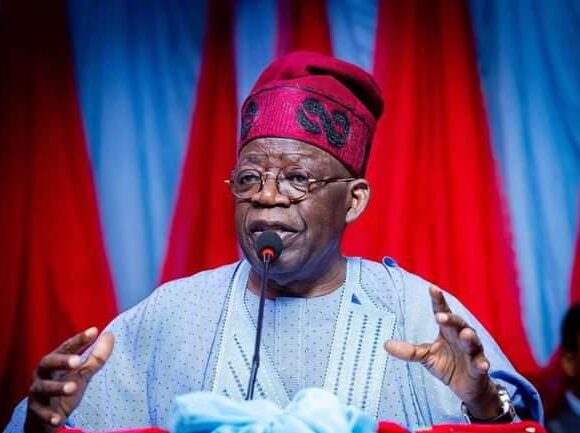How Boko Haram’s Threats Forced Jonathan to Back Down on Fuel Subsidy Removal – Sanusi

By Emmanuel Kwada
The Emir of Kano, Muhammadu Sanusi II, has revealed that former President Goodluck Jonathan’s administration abandoned full removal of the fuel subsidy in 2012 primarily due to the threat of Boko Haram exploiting nationwide protests.
Speaking at the Oxford Global Think Tank Leadership Conference under the theme “Better Leaders for a Better Nigeria,” Sanusi, who was then Governor of the Central Bank of Nigeria (CBN), said the government feared that mass demonstrations could be hijacked by terrorists, leading to deadly attacks.

Former President Goodluck Ebele Jonathan
“The only reason the government compromised and did 50 percent instead of 100 percent was Boko Haram,” Sanusi disclosed. “There were thousands of Nigerians on the streets in Lagos, Kano, Kaduna. We had suicide bombers in the country. If one of them had detonated a bomb in a crowd and you had 200 corpses, it would no longer be about subsidy.”
The 2012 subsidy removal attempt triggered the Occupy Nigeria protests, with massive rallies in major cities forcing the government to partially reverse its decision. What began as an economic policy debate quickly escalated into a national crisis.
There were thousands of Nigerians on the streets in Lagos, Kano, Kaduna. We had suicide bombers in the country
Sanusi, a key architect of the subsidy reform push, described the policy not as a traditional subsidy but as a “naked hedge” – an open-ended financial commitment that exposed the government to unlimited risk.
“You tell 200 million Nigerians: you will never pay more than X naira per litre, no matter what happens to global oil prices, exchange rates, or interest rates,” he explained.
“When crude moved from $40 to $140, the government paid the difference. When the naira fell from ₦155 to ₦300, the government paid. We went from using revenue to pay subsidies, to borrowing to pay subsidies, to borrowing to pay interest on those loans. We had become bankrupt.”
He warned that delaying the reform in 2011–2012 had catastrophic long-term consequences.

Combo photo of Fuel pump Nozzle and Naira
“If Nigerians had allowed the Jonathan government to remove the subsidy in 2011, inflation would have risen from 11% to maybe 13% – painful, but manageable,” Sanusi said. “I put my credibility on the line at the CBN and said I would bring it down. Today, we’re facing over 30% inflation. That’s the real cost of inaction.”
Despite the backlash, Sanusi gave Jonathan credit for political courage.
“I have to give President Jonathan credit – he was determined to do it,” he said. “But security concerns overrode economic logic.”
The former CBN governor also used the platform to critique Nigeria’s leadership class, calling the country “essentially classless” in governance quality.
Why would an accomplished, educated man become a praise-singer?
“Go to the Senate, the House of Representatives – pick 109 random Nigerians without election, put them in those chambers, and the results may not be different,” he said. “You have highly educated people in government who live like illiterates. They abandon their education the moment they take office.”
He condemned the culture of sycophancy and self-enrichment in public office.
“Why would an accomplished, educated man become a praise-singer?” Sanusi asked. “Why can’t he tell his boss the truth? And why can’t a leader listen to criticism? By the time you’re a governor, you should be beyond chasing personal wealth. You’re responsible for millions of lives – education, healthcare, infrastructure. Yet all some think about is building a house. Are you that cheap?”
You have highly educated people in government who live like illiterates
Sanusi’s remarks have reignited debate over Nigeria’s perennial fuel subsidy dilemma, with many analysts agreeing that political and security fears continue to overshadow much-needed economic reforms.
As Nigeria grapples with soaring inflation and fiscal pressures, the Emir’s candid assessment serves as both a historical lesson and a urgent call for bolder, more principled leadership.
Read Also: 5 Things Nigeria Must do to Heal…
Sign up for The Insight Newsletter
Get in-depth, research and data-based interpretative reports from around Nigeria.



